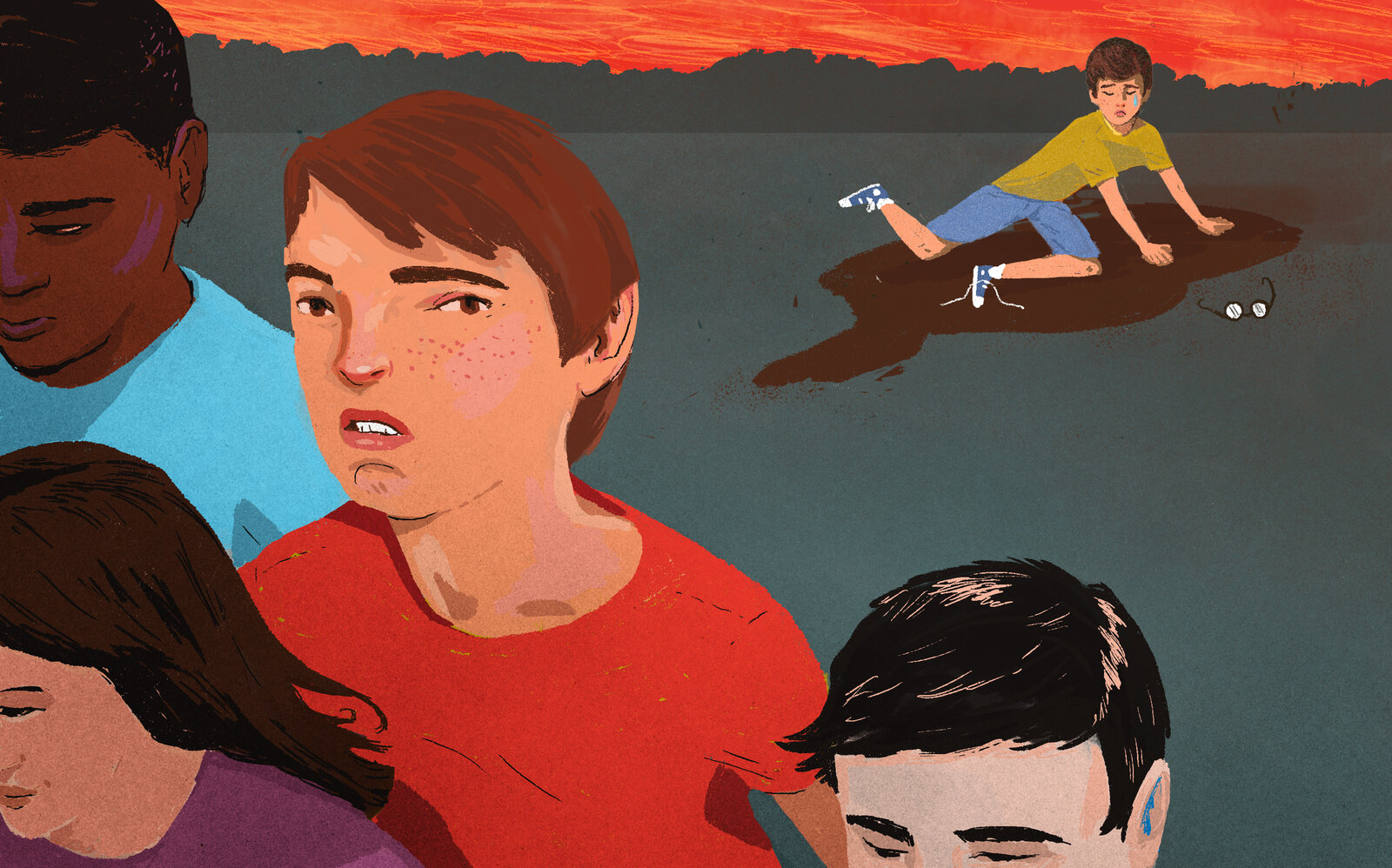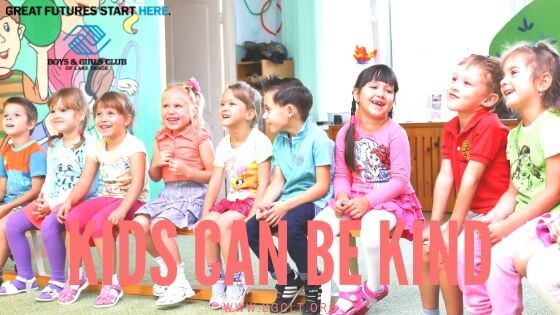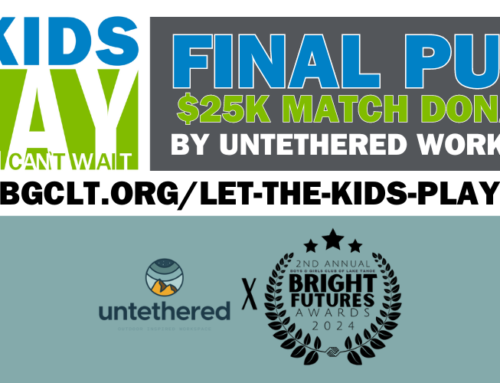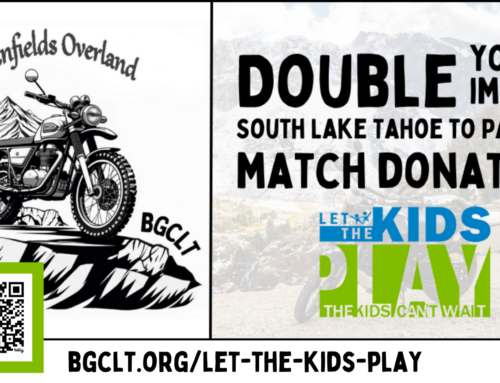As mentioned in previous blogs, here at the Club 2019 has been designated as the ‘year of manners’. In part to ensure that our members are, as we already know, the best kids in Tahoe but also because we have seen a decrease in empathy, compassion, kindness and general civility in recent years. There are many reasons to blame for this, but here at the Club we are more interested in how we can turn it around, and bring kindness back into our community.
And so I was really interested to come across a podcast recently that talked about how we can teach kids to be kind.
 LA Johnson/NPR
LA Johnson/NPR
Firstly it reminded me that children are naturally kind and naturally cruel (it’s human nature!) and that it is through praise, focus, practice and role modeling that we can encourage kindness and discourage cruelty.
Secondly, it reminded me that we need to put kindness on equal merit with good grades, excelling at sports, popularity, and other measures of success that we put on our children. Ask yourself, would you prefer a child that is kind to everyone in his class, or a child who is top of his class? It was shocking that when kids were asked what their parents would prefer, the vast majority said good grades. We need to be better at teaching moral values to our children.
Thirdly, it is our duty as parents, teachers, mentors and coaches to ensure that kindness is taught to our children. It is for their benefit as well as everyone who comes into contact with them. Employers are bemoaning the lack of soft skills in young people today and this is shown in our need to teach social and emotional skills in school and at the Club. Children who are kind will have soft skills and are likely to have better jobs, better relationships and a happier life as a result.
So how can we teach children to be kind?
Kids can recognize when someone is in distress or needs help, but often they don’t know how to react. That is what as adults we need to teach them. Encourage them to lend a hand, encourage them to offer comfort to a friend who is feeling bad or hurt, encourage them to hold open the door for strangers. After repetitive advice, encouragement and action you will see the child start to act for themselves. Then we must praise them for their kindness and reward the good behavior.
Kindness also requires courage. It is the natural reaction to stand out the way when one child is being mean to another. After all you don’t want that negative attention turned on you. But it takes really courage to intervene, to tell the bully that their behavior is not right and protect the other child. Such courage isn’t easy and sometimes is inherent, but role modeling courage, talking to your child about the importance of not turning a blind eye can help them feel confident. Now, of course we don’t want to create vigilantes on the playground, so also encouraging them to seek adult assistance in such situations is always important.
Practicing mindfulness can play an important role in acting in a kind way. Mindfulness is the link between how we feel and how we act. Teaching your children to recognize when they are upset and how they react can be so advantageous in a variety of situations, but in particular, in how they treat others. For example, they are feeling frustrated that their lego project isn’t working and want to lash out to make someone else feel as bad. Making them recognize that connection and seek a more appropriate way to deal with their frustration – time out, deep breathing, counting to 10 etc will help them to be kinder.
Apologies are also really important. Children must take ownership for when they have been unkind and apologize to the other person. The apologies must also be sincere. At the Club we make children apologize, we also get them to discuss how they could have acted differently. What could they have done to get a different, positive outcome? This is important as forgiveness must also be taught, also with accountability. As parents/leaders, we must also never make excuses for our child. When they have been unkind we must acknowledge that and work with them to strive to do better. A child who thinks that their parents will not hold them accountable is going to struggle when they get into the real world and are held accountable at high school, at college or by their boss.
And lastly, praise praise praise acts of kindness, point them out to your child when you see them and encourage your child to recognize when others are kind to them. Something we have been doing at the dinner table in my house is rather than saying ‘what did you learn today, I have been asking ‘were you kind to someone today’? ‘Was someone kind to you’? And then discussing the situation. This shows your child that kindness matters to you and they are more likely to look for instances and opportunities during their day.
If you’d like to hear the podcast for yourself here is the link: https://www.npr.org/2019/05/09/721721668/kindness-can-be-taught-heres-how
And please, make sure your child knows that you value kindness above all other things.






